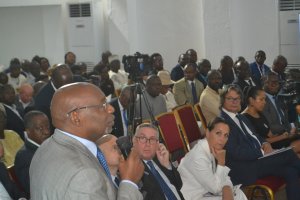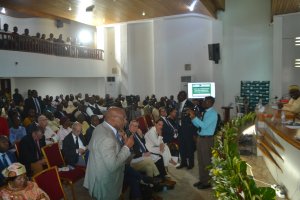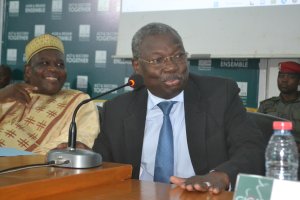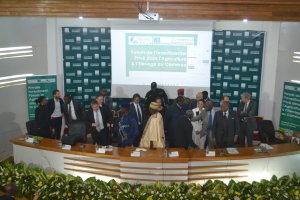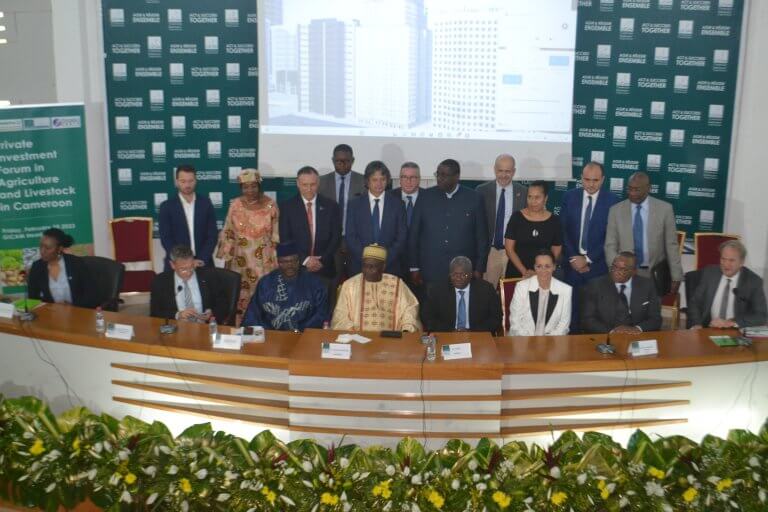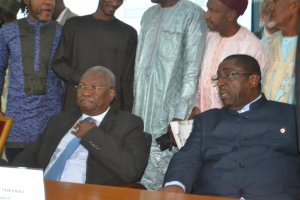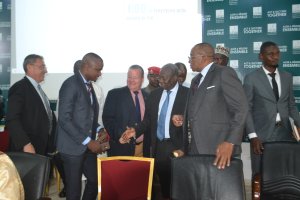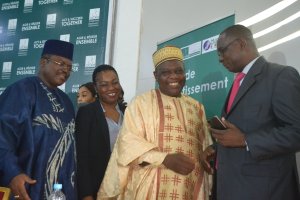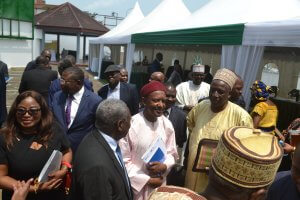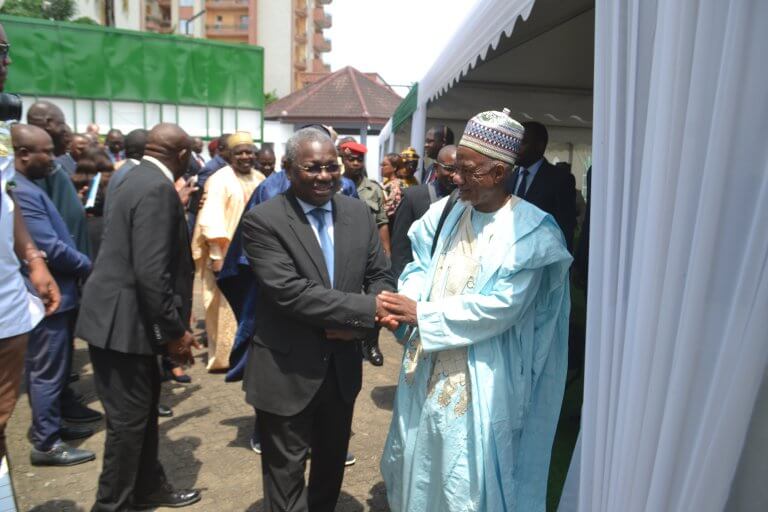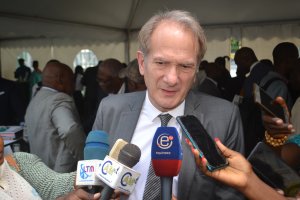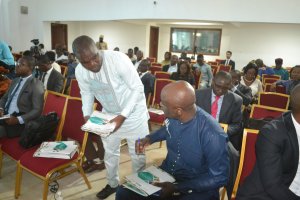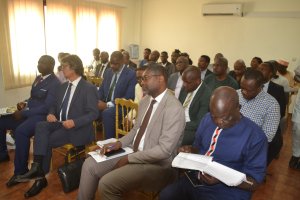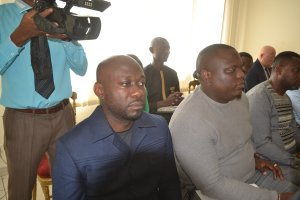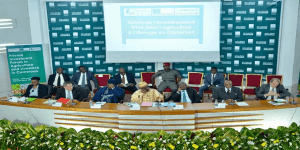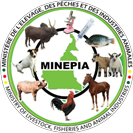Forum on Private Investment in Agriculture and Livestock in Cameroon
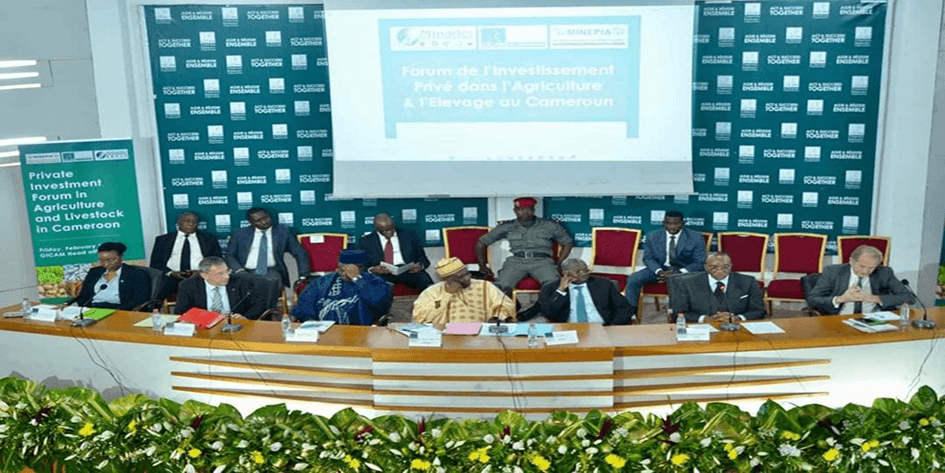
On Friday 10 February 2023, as part of the Forum on Private Investment in Agriculture and Livestock in Cameroon, the André Siaka room at GICAM was the venue for a gathering of leading figures from the diplomatic, political and economic worlds, all of whom were keen to contribute to Cameroon’s food independence.
These included: Mr Célestin Tawamba, President of GICAM, host of the event; Mr Gabriel Mbairobe, Minister of Agriculture and Rural Development; Dr Taiga, Minister of Livestock, Fisheries and Animal Industries; H.E Thierry Marchand, French Ambassador to Cameroon; Ms Anne Sophie AVE, Ambassador for Public Diplomacy in Africa; and Mr Jean Marc Gravellini, representative of the ALFA Alliance.
This major and unprecedented event is part of the ongoing efforts by GICAM and its President, Mr Célestin Tawamba, to improve food sovereignty in Cameroon in the context of the unprecedented global crisis we are experiencing.
Indeed, as President Célestin Tawamba reminded us in his welcome speech, “food sovereignty has become a major issue for all the countries on our planet, and perhaps even more so for the developing countries that we are”.
Today’s event was marked by three main events: an opening plenary session, workshops and a closing plenary session. The opening session was marked by speeches by the President of GICAM, the French Ambassador to Cameroon, the representative of the ALFA alliance, MINEPIA and MINADER.
In his welcome address, Mr Célestin Tawamba recalled that this forum was born out of the shared desire of GICAM, MEDEF International and ALFA to “contribute to the structuring of complete and sustainable sectors combining agricultural and livestock production, the professionalisation of players, processing and marketing, the supply chain and the strengthening of infrastructures essential to the development of these sectors”.
This follows the signing in July 2022 of an MOU between the three organisations, during the state visit of the President of the French Republic to Cameroon, H.E Emmanuel Macron.
At the end of this forum, which welcomes the project leaders selected following the call for expressions of interest on 6 January 2023, the aim is to provide them with the tools they need to understand the FARM initiative, the existing incentives and support, and above all to establish contacts with GICAM partners with a view to fruitful agreements.
President Tawamba’s ambition is to make Cameroon a laboratory for the FARM initiative. This was one of the key aspects of his opening remarks, which were echoed by H.E. Thierry Marchand, the French Ambassador to Cameroon. In his speech, he reaffirmed France’s commitment to supporting this initiative in Cameroon, while praising the speed with which the protocol was implemented, and also expressed the hope that the momentum would be maintained.
Mr Jean Marc Gravellini, representative of MEDEF International and the ALFA Alliance, also praised the speed with which the initiative was launched, as well as the importance of the potential of the Cameroonian economy, which could be developed through this initiative, while contributing to the implementation of policies to promote import substitution, as recommended in SND 30. The speeches by the members of the government were an opportunity for them to recall the measures implemented to support the development of the rural sector following the opening remarks by MINADER.
A summary of the subscriptions received and presented by Mrs Aline Valérie Mbono, Executive Director of GICAM, showed that nearly 662 applications had been registered and 138 shortlisted on the basis of criteria relating to the size and maturity of the projects.
It also emerges that the need for finance and access to inputs and equipment are the main needs expressed by project developers. At the same time, the availability of sites and the mastery of technologies are the main assets declared by project promoters.
During the discussion session with participants, a number of concerns were raised: The question of how to finance projects under this initiative. PROPARCO’s approach should make it possible to define a financing mechanism tailored to the agricultural sector; supporting entrepreneurs in setting up projects, in particular by making land reserves available for the development of large farms or plant and livestock equipment; Implementing support measures for certain sectors (notably palm oil and soya), focusing in particular on improving the productivity of family farms in the palm oil sector through a programme estimated at nearly 400 billion CFA francs by 2035;
The workshops enabled participants with projects to be better informed about the opportunities and constraints to the development of the sectors in which their projects are involved. The recommendations resulting from these workshops are aimed at improving the formulation of projects, as well as the criteria that should guide the final selection of projects. In his closing remarks, Chairman Célestin Tawamba stressed the need for project sponsors to provide the information needed to assess the profitability and feasibility of their projects.
Source : GICAM
